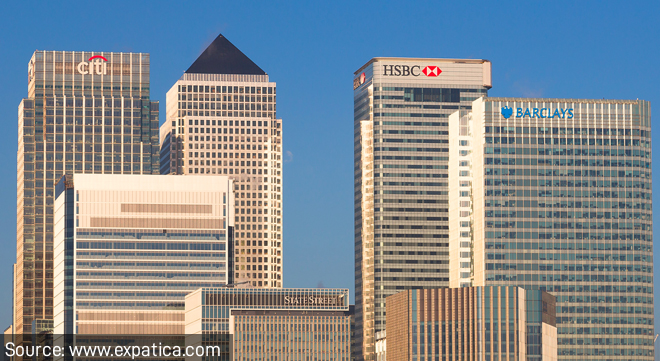It was quite a shock to read about the UK planning to ease regulation of financial services while we are scrambling to abide by the requirements set by the Financial Action Task Force. As our authorities have often borrowed from their counterparts in the UK (think TCF and, more recently, the business interruption controversy), would it be overly optimistic to expect the same here?
An article in BBC News reports that the British government has announced what it describes as one of the biggest overhauls of financial regulation for more than three decades. It says the package of more than 30 reforms will “cut red tape” and “turbocharge growth”.
The main purpose is to streamline financial regulation in line with British needs, following Brexit, and remove legislation it was forced to introduce as a member of the European Union. Rules that were introduced after the global financial crisis will also be reviewed.
However, critics say the UK risks forgetting the lessons of the financial crisis. Between 2007 and 2009 the then-Labour government spent £137 billion of public money to bail out banks.
The plans to ease regulations on financial services are being described as another “Big Bang”, a reference to the deregulation of financial services by Margaret Thatcher’s government in 1986.
The government has already announced it will scrap a cap on bankers’ bonuses and allow insurance companies to invest in long-term assets such as housing and windfarms to boost investment and help its levelling-up agenda.
Rules governing how senior finance executives are hired, monitored and sanctioned will be overhauled.
There will also be new rules around bundling investments into tradeable units – a process called securitisation.
The government also re-announced more freedom for the pensions and insurance industry to invest in longer-term, illiquid assets such as social housing, windfarms, and nuclear power stations.
There was a nod to developing the UK as a centre for crypto assets, but with some caveats, given the recent bloodbath after the demise of the cryptocurrency exchange FTX.
Most financial industry leaders say they are crypto curious but do not feel the need to be first on this. “Let the shipwrecks of others be your seamarks,” said one.
Government’s intentions
Chancellor Jeremy Hunt said the changes would secure “the UK’s status as one of the most open, dynamic and competitive financial services hubs in the world”.
The reforms “seize on our Brexit freedoms to deliver an agile and home-grown regulatory regime that works in the interest of British people and our businesses”.
Reactions
However, Labour’s shadow City minister, Tulip Siddiq, said the reforms would bring more risk.
“That this comes after the Tories crashed our economy is beyond misguided,” adding that the reforms were part of a “race to the bottom”.
Green charity the Finance Innovation Lab said the government “is taking major risks with the stability of the economy”.
“Weakening the essential protections that were put in place after the global financial crisis is an incredibly dangerous move. They help keep the system stable and our money safe,” said its chief executive, Jesse Griffiths.
The most scathing comment came from Fran Boait, executive director of campaign group Positive Money:
“This deregulation agenda comes on top of an already fragile economy, with consumer credit at a 17-year high as low-income households get deeper into debt just to cover the essentials. If financial institutions are allowed to pile ever more expensive debt on to struggling households and small businesses, we will see a wave of insolvencies, potentially a deep and long-lasting recession exacerbating inequality, and more and more families going cold and hungry.
“How is the government getting away with being such a champion of big finance? The starting point is the enormous power the finance sector already has within Westminster, with direct financial ties, lobbying access and the revolving door it maintains with the public sector. In 2020 and 2021, financial institutions and individuals closely tied to the sector donated more than £15 million to political parties.
“The sector has also become extremely skilled at developing myths about its own importance, managing to convince powerful interests that a bloated financial system is essential to a thriving UK economy. Of course, the opposite is true: financial institutions claim to be helping vulnerable customers by keeping branches open during the pandemic, while simultaneously undertaking the biggest bank closure scheme ever. They present themselves as the solution to environmental breakdown, while continuing to pour tens of billions of pounds into fossil fuels. They claim they provide investment that creates jobs across the country, but in reality, less than 5% of bank lending is to small and medium-sized businesses, and they have a record of pushing them into insolvency. Taken alongside the fact that they are still ‘too big to fail’, support for the City isn’t faltering in the halls of power.”
I would hate to be on the wrong side of this lady!
All quiet on the local front?
I am not holding my breath that we are likely to see similar changes soon.
In fact, looking at what is cooking in the reform pot, we are likely to experience more than just indigestion in 2023.
Of course, there are several handy hints listed above for our battling government and political parties. Apart from the more obvious ones, such as getting the private sector involved in developing wind, solar and nuclear power generation, they should see how much money they can get from the deep pockets of financial institutions for themselves. All they need to do is to scrap the new law on funding of political powers. If they had done so earlier, they might have been able to pay their staff and possibly even considered annual bonusses.



